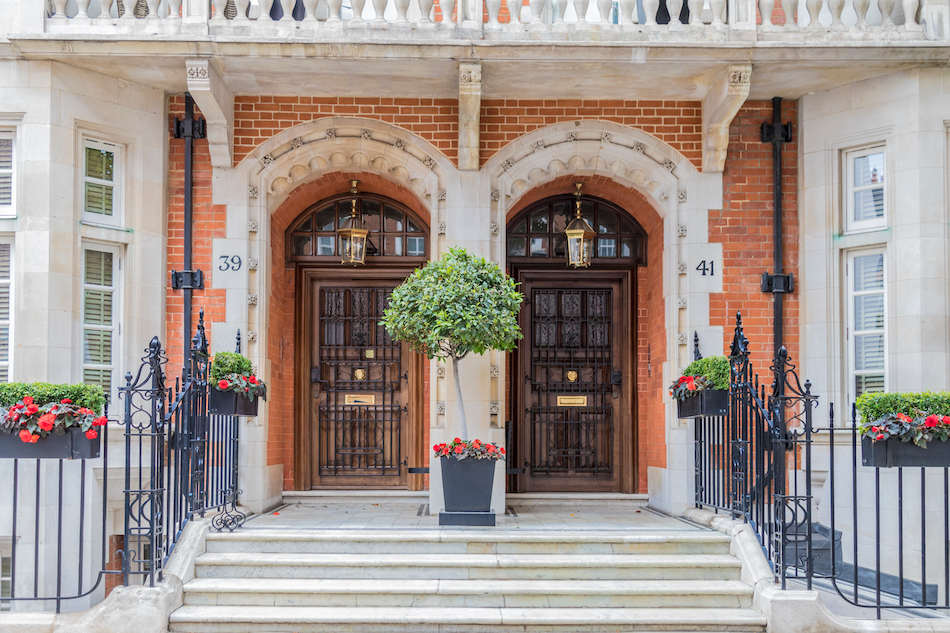Mortgage rate increases have dominated headlines over the past few months, although European rates haven’t had the same airtime as US and UK counterparts recently, probably because they sit much lower and haven’t risen as much.
Most European mortgage rates are linked to the EURIBOR – the Euro Interbank Offered Rate – which is one of the most important reference rates in the European market and is the basis for many European private bank mortgages. The EURIBOR was famously negative from 2015 until July 2022. While EURIBOR no longer being negative means has raised European private bank mortgage rates (which are usually calculated on the three-month average of EURIBOR, plus the bank’s margin), the rise has not been as marked as in the UK and US. Each private bank will set its own rates, so these will be some variation between what each bank will offer, but European mortgage rates remain, generally, lower than those in the UK and US.
French Mortgages
There is plenty of lender appetite for financing prime and super prime French mortgages for non-resident investors and expats (who can struggle to access French mortgages from abroad, despite being French).
Private bank lenders like the prime French property market, given the steady demand for property and stable prices, especially in the best areas of France. Retail banks can do some lending in very simple transactions in prime areas, but high-value property purchases in any prime area of France will tend to be the exclusive haunt of private banks.
It can be harder to get a high-value private bank mortgage if you are not buying in super-prime France. Lenders typically view much of Provence, non-super-prime Paris (anything outside arrondissements 1, 2, 6, 7, 8 and 16), less popular Alpine ski resorts and villages inland from the Cote d’Azur as not being super prime, even if you are buying high-value property.
Get in the Know
Subscribe to our newsletter
In these less sought-after regions, private bank mortgages are available, but you may need to bring additional AuM to secure the deal. Lenders will also look carefully at the type of property you are buying – to purchase older property or chateaux-style property with a private bank mortgage, you will need to have a very significant net worth and potentially place more assets under management to secure finance – if lenders green-light lending at all.
Italian Mortgages
Private banks only offer Italian mortgages in prime areas – notably Lake Como (Bellagio, Menaggio Como, Cernobbio and Moltrasio), as well as against high-value property in Rome, Tuscany and some parts of Liguria.
Again, banks will look carefully at the property you want to buy – Italy is full of bargain castellos and villas in little-known corners of the country that are ripe for refurbishment – financing these purchases will be of little interest to private banks unless you have very high net worth that will support these purchases.
Private banks like to offer mortgages against fantastic property in very liquid markets that have a track record of strong domestic and international demand. Where you are buying and what type of property you purchase will determine if you can access an Italian private bank mortgage. Private banks tend not to offer Italian mortgages outside super prime regions, except if your profile and net worth merit starting a banking relationship.
Swiss Mortgages
The Swiss property market remains buoyant, with plenty of prime and super prime property available, especially in Switzerland’s larger cities and the surrounding lakefronts (usually for domestic buyers, given strict quotas and permitting requirements) and in the designated holiday regions. Non-residents can only buy in holiday regions, and there is usually significant competition for these properties – especially in the most sought-after locations like Verbier, Gstaad and Grindelwald, so liquidity is essential.
Domestic private banks tend to be the most popular lenders for these deals, but some international private banks will also offer finance. AuM is expected in these scenarios.
Spanish and Portuguese Mortgages
While private banks tend to be the best lenders for any high-value European mortgage, Spain and Portugal can be the exception to the rule. Retail banks offer mortgages of €800,000 - €1 million (which will arguably buy you more prime real estate in Spain and Portugal than in prime France, Switzerland or Italy).
However, to qualify for a retail bank mortgage in Spain or Portugal, you will need to be a very plain vanilla borrower with a simple income structure (usually you’ll need to be employed on a high salary with no unusual bonus structure, etc.), you will need to buy in your own name and have a good deposit to put down. If you don’t meet these criteria or if you want to finance a high-value property purchase, you will need a private bank mortgage.
Qualifying for Private Bank Mortgages
Every bank will have their own lending criteria, but you will generally need to have an annual income of at least €250,000 to be eligible for a private bank mortgage and you will need to be in the market for a mortgage of €2 million or more. You will also need to have a net worth that is at least 1.5x (preferably double) your mortgage amount.
European Mortgages: Retail vs Private Banks
Private banks tend to be the best lenders for high-value European mortgages. International and domestic retail banks serve much of the holiday home market, but these lenders don’t typically offer mortgages of €1 million or more, can’t accommodate prime property financing deals, and will struggle to lend in anything but the most straightforward deals. Retail bank mortgages are amortized loans paid back as a mixture of capital and interest, whereas private banks will offer different lending products that may be more flexible and suited for HNW borrowers.
As a general rule, if you want to finance any prime European property purchase (either in terms of price or location) private banks are likely to offer you the best deal.
Understanding Assets Under Management Requirements
To access a private bank mortgage – especially in high-value property financing deals, you will usually need to place assets under management with your lender. ‘Dry lending’ from a private bank (when you will be offered a mortgage without placing AUM) is possible but is increasingly rare. Private banks offer dry loans on a case-by-case basis, and usually these deals will need to be managed and arranged for you – it is not something you simply ask for.
You’ll usually need to put a minimum of at least €1million in assets under management to access a private bank mortgage, and at least 25-35% of the mortgage value for larger mortgages.
Many first-time borrowers are apprehensive about placing AUM with a bank – it usually means a new banking relationship and understanding how your funds will be managed. Each bank will have different products on offer that will cover different risk appetites. For smaller mortgages, (€1-4 million) banks will usually have fixed portfolios, again with a selection of investment strategies. For the most cautious of borrowers, private banks will usually offer a very defensive investment strategy that will guarantee a return (as a percentage) with the funds 100% secured.
In some cases, you can manage the AUM yourself (execution only), or you’ll invest into one of the bank’s predefined portfolios. US clients are sometimes offered alternative funds to European borrowers – also with guaranteed returns. If you have a very significant net worth and you are seeking a very large mortgage, the bank will usually offer a bespoke AUM arrangement.
Private Banks: Types of Mortgages on Offer
Placing AUM will usually allow you to benefit from a 100% LTV mortgage and 100% mortgages the norm for prime European property finance. Interest-only mortgages are also prevalent and are on offer. It is worth noting that although you will need to place AuM with your lender, this is not the same as paying a deposit. AuM isn’t calculated as part of the equity you own in a property, and because the assets are managed, they will generate returns over the lifetime of the mortgage which are– for example some banks AuM investment portfolios with a guaranteed 2% return, or similar.
Ownership Structures
Private banks are, naturally, used to working with high-net-worth individuals. As such, they understand the how you and your advisers will structure your assets, the way you will manage your international revenue and capital flows, the structures you will use to protect and streamline your wealth and the corporate entities you will use to hold your property.
Private banks offer high-value mortgages in deals where a company will purchase and hold the property – they usually do not lend directly to borrowers. This is usual for prime European property purchases for streamlining taxation and debt, liability, to facilitate the rental of the property and so on. Usually, you’ll buy a property using a domestic entity i.e., you will buy a French property using a French entity, but private banks can consider deals where a foreign entity will hold the property, provided your global structures are transparent and compliant.
Bridging Finance
Bridging finance remains popular for European property purchases. Bridging loans are either used to buy property quickly or to release equity from unencumbered European property. There are increasing numbers of lenders in the space that can offer international bridging loans, including in as a way to generate liquidity quickly to buy property quickly.
Bridging loans start at around €1 million and can be arranged very quickly – around two weeks is possible, even in high-value deals.
Get In Touch
Enness arranges high-value European mortgages for high-net-worth individuals and familities looking to buy prime European real estate.
Contact Enness to have a no-obligation chat about your plans for purchasing property in Europe and explore how we can help you structure and streamline property finance.
This guide is for information and illustrative purposes only and nothing contain within should be construed as advice or a recommendation.
Financing options available to you will depend on your requirements and circumstances at the time. Any changes in your circumstances, any known likely changes, or omissions in the information you provide can affect the suitability of the options available to you. These should be communicated to us as early as possible.
If you are considering securing debts against your main home, such as for debt consolidation purposes, please think carefully about this and consider all other options available to you.
Your home may be repossessed if you do not keep us repayments on your mortgage or other debts secured on it.





